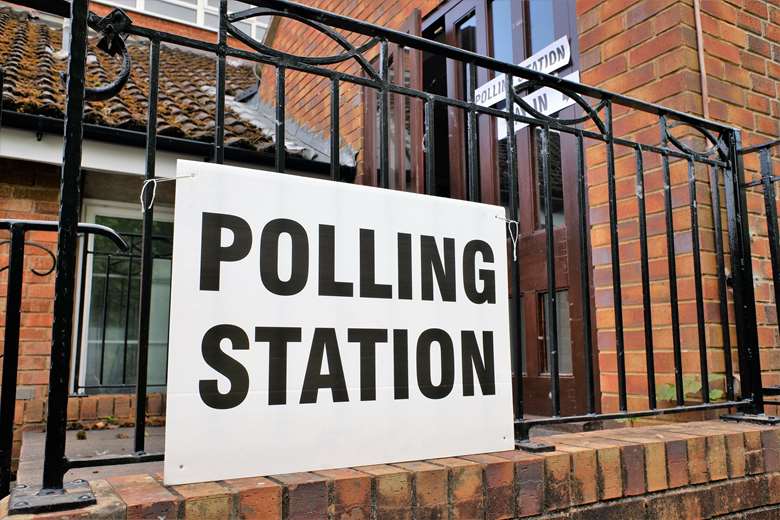Voter ID laws couldn’t be more pointless if they tried
Lloyd Mann
Thursday, May 11, 2023
I’m young, but I know a thing or two about barriers to voting.

Aged 18, I’ve already voted in two elections (due to the Welsh government's reforms to voting ages) – and I also have experience from the ‘inside’.
I was elected to the Welsh Youth Parliament in late 2018 and, since my term ended, I’ve been engaged with both the Institute for Community Studies at The Young Foundation, supporting policy change to better equip and engage young people, and The Democracy Box, an organisation dedicated to civic education and getting young people to make informed choices at the polls.
I’ve seen how difficult it can be to convince people to get out and vote. In fact, according to the British Election Study, voter turnout for 18- to 34-year-olds across Britain sits around 50 per cent, compared with around 80 per cent for those aged over 75. If we hope to change this, the last thing we need is the government’s new Voter ID laws.
On first look, the argument for Voter ID laws is simple: to stop voter fraud and protect the integrity of our elections, people must come to the ballot box with photo ID to prove they are who they say they are. You almost certainly would’ve heard it be described as “common sense”. However, the reality is the opposite, because the government has introduced a solution to a non-existent problem – and, in doing so, created a much larger problem, not just for those without photo ID but for those with it as well.
The issue of voter fraud essentially doesn’t exist. In all of the 2019 elections, according to the Electoral Commission’s own figures, there were 595 cases of alleged ‘electoral fraud’. Not voter fraud, ‘electoral fraud’ generally. Of those 595 cases, 142 related to voter fraud. And of those 142, only one conviction was given for using someone else’s vote and one police caution for the same offence to another individual. So, of more than 32m people that voted in 2019, there were two cases of voter fraud with any real consequence.
Further, the government’s own research suggests voter ID legislation presents barriers. While their research suggests just one per cent of young people, which is around 94k people, don’t own a form of Photo ID, and the picture is more complex than this statistic implies: across all age groups, 27 per cent of those with no photo ID and 19 per cent of those with unrecognisable photo ID said they’d be less likely to vote under this new law. More than four in ten of all eligible voters without any photo ID said they’re unlikely to apply for a voter card (now known as a Voter Authority Certificate), and 37 per cent without a recognisable photo ID said they’d also be unlikely.
The research also uncovered a link between disability and difficulty. Those with a severely limiting disability were three times more likely to state photo ID would make voting more difficult. Those with a somewhat limiting difficulty were twice as likely compared to those with no disability.
Unfortunately for the government, I am not the only one asking questions about their research and data, or raising concerns. Hackney Borough Council, for example, made a submission of evidence regarding the voter ID regulations, stating that - as the borough has a low level of car ownership - they estimate 47 per cent of households hold no driving licence. This sits against a backdrop of 27.9 per cent of local residents not holding a UK passport and a further 6.8 per cent in Hackney not holding any passport. The council also pointed out that the Electoral Commissions pilot study found that awareness of new voter ID laws in pilot authorities varied significantly between groups, with ‘younger voters and those from Black and minority ethnic backgrounds being less likely to know about the requirements’.
Further, during this Voter ID pilot in 2018 and 2019, between 0.03 per cent and 0.7 per cent of all voters were turned away and didn’t return. Applying those figures to the 2019 election as a whole equates to between 9,000 to 224,000 people. Imagine you’re a young person and your first experience of voting is being turned away. You’d hardly be encouraged to do it again. Especially considering polling station queues are known to be as long as 30 minutes in some areas without everyone’s ID being checked.
Being on the Institute for Community Studies’ Civic Journey Advisory Board, I look at in great detail at the experiences of young people regarding their engagement with their communities, society and culture. Members of the Board look at what’s going right and what’s going wrong across all areas of a person’s ‘civic journey’, not just voting. But it can’t be ignored that voting is fundamental; a chance for people to influence their future.
Speaking from both the perspective of someone looking at the civic journey of all UK young people, and the perspective of a human being growing up in the UK today, I believe these laws are wrong. Young people need sensible and clear policy. To me, it seems this is neither.
And while there’s nothing we can do about last week's local elections, I’m urging for the repeal of this Voter ID law, because ultimately we should be helping people to use their right to vote, not making it harder.
Lloyd Mann is on the Youth Advisory Board with the Institute for Community Studies at The Young Foundation.




